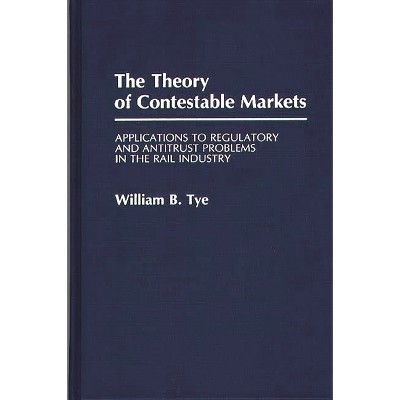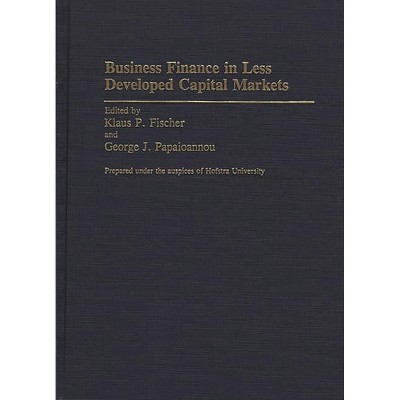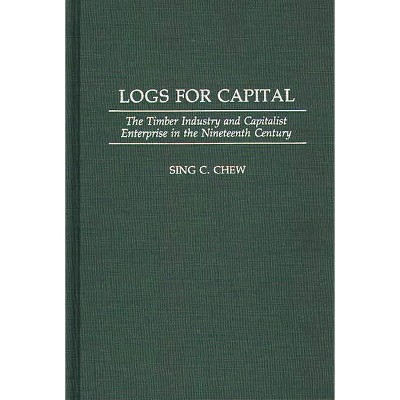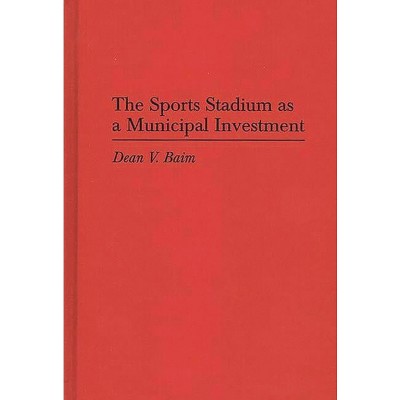Sponsored

Monopoly Capital Theory - (Contributions in Economics and Economic History) by Jonas Zoninsein (Hardcover)
In Stock
Sponsored
About this item
Highlights
- In his pioneering work Finance Capital, originally published in 1910, Rudolf Hilferding developed and examined the concept and economic policy of finance capital, developing Marx's analysis of the processes of concentration and centralization of capital and the roles of competition and credit within these processes.
- About the Author: JONAS ZONINSEIN is Professor of Economics at the Federal University of Rio de Janeiro (on leave), and Assistant Professor of International Relations and Political Economy at Michigan State University.
- 152 Pages
- Business + Money Management, Free Enterprise & Capitalism
- Series Name: Contributions in Economics and Economic History
Description
About the Book
In his pioneering work Finance Capital, originally published in 1910, Rudolf Hilferding developed and examined the concept and economic policy of finance capital, developing Marx's analysis of the processes of concentration and centralization of capital and the roles of competition and credit within these processes. This book provides a critical examination of the theory of finance capital by focusing on the concepts of competition, credit, and economic crises. Jonas Zoninsein concentrates on the theory of monopoly capital, which has its roots in Hilferding's work, presenting a critique of this economic principle that plays an outstanding role in current explanations of how the capitalist mode of production operates in the twentieth century.
Although finance capital and monopoly capital are the underlying concepts that explain capitalism today, Hilferding's sources in detailing his theory were basically the characteristics of Germany's late industrialization. His analytical effort was chiefly oriented toward formulating general theoretical principles about the working of capitalism. In this critical study, Zoninsein analyzes Hilferding's central elements--competition, credit, capital accumulation, and crises--and seeks to refine and reinterpret the concepts and procedures in light of the current changes in economic thought and social life. Particular attention is paid to the sharp contrasts that are exhibited between Hilferding's work and the economic theories of Marx. The volume also includes a selected bibliography of relevant works. For courses in political economy, Marxist theory, and monopoly capitalism, this study will be a excellent resource, and both public and academic libraries will find it to be a valuable addition to their collections.
Book Synopsis
In his pioneering work Finance Capital, originally published in 1910, Rudolf Hilferding developed and examined the concept and economic policy of finance capital, developing Marx's analysis of the processes of concentration and centralization of capital and the roles of competition and credit within these processes. This book provides a critical examination of the theory of finance capital by focusing on the concepts of competition, credit, and economic crises. Jonas Zoninsein concentrates on the theory of monopoly capital, which has its roots in Hilferding's work, presenting a critique of this economic principle that plays an outstanding role in current explanations of how the capitalist mode of production operates in the twentieth century.
Although finance capital and monopoly capital are the underlying concepts that explain capitalism today, Hilferding's sources in detailing his theory were basically the characteristics of Germany's late industrialization. His analytical effort was chiefly oriented toward formulating general theoretical principles about the working of capitalism. In this critical study, Zoninsein analyzes Hilferding's central elements--competition, credit, capital accumulation, and crises--and seeks to refine and reinterpret the concepts and procedures in light of the current changes in economic thought and social life. Particular attention is paid to the sharp contrasts that are exhibited between Hilferding's work and the economic theories of Marx. The volume also includes a selected bibliography of relevant works. For courses in political economy, Marxist theory, and monopoly capitalism, this study will be a excellent resource, and both public and academic libraries will find it to be a valuable addition to their collections.Review Quotes
?A brilliant volume on the origin and development of the theory of monopoly capitalism. Zoninsein presents a fresh and compelling critique of Hilferding's view of monopoly, state, and crises in 20th-century capitalism. He demonstrates how contemporary neo-Marxian theorists, contrary to Marx, have been following in the footsteps of Hilferding who doubted the applicability of the law of value to contemporary capitalism. The author precisely points out that the fault does not lie in Marx's theory but in the neo-Marxian notion of competition, whose origin resides in Hilferding's and the early neoclassicists' notion of pure competition. Consequently, the division of capitalism into laissez-faire and monopoly states leaves out competition entirely in the latter stage. The author suggests that the rejection of the above dichotomy depends on the rejection of pure competition--for competition in capitalism is neither pure nor perfect. In competition, the more powerful capitals tend to smash the weaker ones. This fight for survival, in turn, leads to further concentration and centralization of capital. Indeed, this real-world illustration has nothing to do with pure competition, an ideology dominant in modern economics, both orthodox and radical alike. This is an eyeopener, a superb book indeed for both advanced undergraduate and graduate students.?-Choice
?Professor Zoninsein provides the reader of his book with a careful explanation and a lucid description of Hilferding's basic thought. For that alone, the book is worth reading.?-History of Political Economy
"Professor Zoninsein provides the reader of his book with a careful explanation and a lucid description of Hilferding's basic thought. For that alone, the book is worth reading."-History of Political Economy
"A brilliant volume on the origin and development of the theory of monopoly capitalism. Zoninsein presents a fresh and compelling critique of Hilferding's view of monopoly, state, and crises in 20th-century capitalism. He demonstrates how contemporary neo-Marxian theorists, contrary to Marx, have been following in the footsteps of Hilferding who doubted the applicability of the law of value to contemporary capitalism. The author precisely points out that the fault does not lie in Marx's theory but in the neo-Marxian notion of competition, whose origin resides in Hilferding's and the early neoclassicists' notion of pure competition. Consequently, the division of capitalism into laissez-faire and monopoly states leaves out competition entirely in the latter stage. The author suggests that the rejection of the above dichotomy depends on the rejection of pure competition--for competition in capitalism is neither pure nor perfect. In competition, the more powerful capitals tend to smash the weaker ones. This fight for survival, in turn, leads to further concentration and centralization of capital. Indeed, this real-world illustration has nothing to do with pure competition, an ideology dominant in modern economics, both orthodox and radical alike. This is an eyeopener, a superb book indeed for both advanced undergraduate and graduate students."-Choice
About the Author
JONAS ZONINSEIN is Professor of Economics at the Federal University of Rio de Janeiro (on leave), and Assistant Professor of International Relations and Political Economy at Michigan State University. During the 1988 and 1989 academic years, he was a Visiting Professor at Brown University. He is the author of the articles Value, Competition, and Concentration (Revista de Economica Politica) and Joint Ventures in Brazilian Industrialization (Economica de America Latina).Shipping details
Return details
Trending Non-Fiction

















